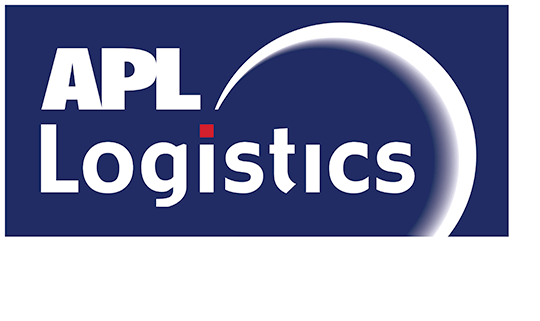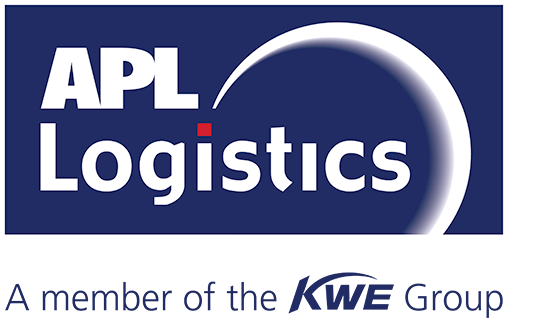October 1, 2021 in PODCASTS
Keeping Control In A Turbulent Year – Technology
https://youtu.be/gpP6OYPs95M
More than ever, technology creates impactful change for businesses and enables us to reach the next horizon of operational effectiveness.
In this episode of The APLL Pulse Podcast, April and Gail explore the advantages they’ve seen first-hand that technology can bring to companies. A condensed version of the conversation follows.
April Chapman (Host): Hello, everyone. I am your host today, April Chapman. Our guest is Gail Paepke, Director of Technology Solutions at APL Logistics. With over 23 years of experience in the supply chain industry, Gail is fostering better collaboration and delivering high-value, large-scale applications that meet the ever-changing needs of our internal users and external customers. I’ve had the privilege of working with Gail for years. She’s a go-to person, and she’s driving organizational effectiveness at pivotal moments.
Welcome to the show, Gail. Covid has been a global issue that impacted everybody. From your perspective, what do you see as some of the big impacts?
Gail Paepke: Covid is like those big moments that everybody can remember where they were, what they were doing. The management said we’re shutting down and go work from home. In March 2020, that notice came. I remembered having to figure out where I was going to work. Thank God I had an RV, a camper trailer parked in the driveway. I converted that into my office, and I was working out of that for about a month. So that was interesting. It was like virtual camping on the driveway but working instead of camping.
April Chapman: So that’s a test. You can work anywhere now.
Gail Paepke: Right.
It’s like the whole world went on a crash diet during the lockdowns. Customers told us to stop the bookings and the shipping. That went on for months before the places started opening. Now, we are seeing the world binge eating, and we’re facing the heartburn effects with the port congestions and inflated freight rates.
We had to pivot quickly in the way we’re managing projects and supporting customers. It demanded a lot of agility.
Driving Digital Transformation
April Chapman: Every company can relate to that on some level. For us, we have many retail customers and that was a big impact when all the stores are closed. Working out of Asia, especially the offices in China, we felt the impact right away when Covid hits. I try to see silver linings in situations and one of the silver linings lies in the big project, LSS+. Although we didn’t plan to launch the project virtually, we were able to do it. Let’s tell everyone about what the project is about and how Covid really impacted the development.
Gail Paepke: At the end of 2019, before COVID became severe, we started an ambitious IT project to upgrade our visibility application and consolidate several small functionalities into a flagship application named Logistic Super Suite Plus (LSS+). The level of project management, preparation work that needed to be done was unthinkable.
When Covid hits, we had to think overnight about managing a massive, global project, all while working from home. Traditionally, we attend on-site meetings or focus group discussions. That was not an option anymore.
It demanded us to think and organize quickly. On top of that, we must be cognizant and acclimate to the different time zones, equipment capabilities, working conditions, and be empathetic toward people working at home with kids.
And I remember, April, you were involved. We had to roll out Microsoft Teams quickly. This collaborative platform allowed us to share all the information in one place. It’s been essential, and we use Teams heavily to manage this project.
Embracing A Culture Of Change
And I think because of our culture, we can deal with change quickly internally and stay open-minded. I think largely due to that, we successfully rolled out the project, the changes, the communications, training, and on time. In my opinion, that’s a pretty significant achievement.
And I remember, April, you were involved. We had to quickly roll out Microsoft Teams. This collaborative platform allowed us to share all the information in one place. It’s been essential and we use Teams heavily to manage this project.
And I think because of our culture, we are able to deal with change quickly internally, and stay open minded. I think largely due to that, we were successful in rolling out the project, the changes, the communications, trainings, on time. In my opinion, that’s a pretty big achievement.
April Chapman: Now we’re on the other side and seeing just that the entire project was a success. That’s exciting because we did it in a new way and we had to adapt. It’s quite an achievement.
The Value of Collaboration
Gail Paepke: The way I see it is, these working conditions have highlighted certain opportunities for us to improve collaboration. More time and investment were put into how we enhance collaboration so that it is seamless and intuitive for operations to collaborate with customers, for customers to find the information relating to their shipments in LSS+, without needing to search through the emails or email folders.
This environment has forced us to think about streamlining, making it easier to get the job done and to keep our focus on the user experience. We reduced the time a customer need to spend on searches and allow the customer to gain information quickly. No trails, no frails, it’s all about getting the job done.
April Chapman: Could you share what are the takeaways from here, and how do you see the project develops in the future?
Harnessing The Power Of Data
Gail Paepke: In logistics, data is the key to managing the supply chain. It’s important to provide good data. And Logistics Super Suite (LSS+) is a platform for various stakeholders, like shippers, customers, operations, carriers, to make their bookings, share information, get reports, perform track and trace, and all that involves working with data.
While we already have projects in progress, we are looking at expanding our data sources because, traditionally, some data come from sources with gaps, and it’s just unavoidable. We’re also looking at extending the number of sources from which we can get the data, whether from an open-source or providers like aggregated data providers.
We realized that data quality is going to be very important. It is not about having app systems that do fanciful automation, alerts, or optimization of pretty analytics. Without good data quality, everything we do is not going to be robust or dependable.
Therefore, our future roadmap will be heavily invested in improving data quality and the way we manage data to provide reliable data for our users, including external customers and internal users.
April Chapman: Gail, thank you so much for sharing your insights with us today. We appreciate you.
Gail Paepke: Well, thanks for having me.


